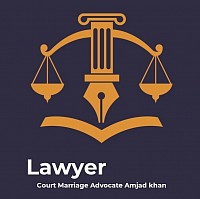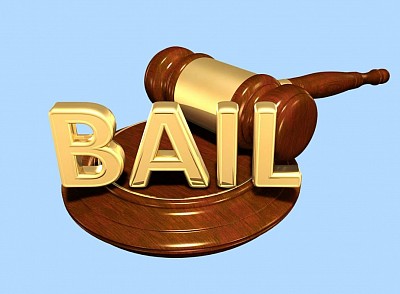Bail in criminal cases
Bail in Delhi
Bail means the temporary release of the accused in a criminal case in which the court has not yet announced a verdict. In general terms, bail refers to the temporary release of a suspect of any criminal offense pending trial after bail has been posted. It may be given by a police officer in the custody of the accused, or by a court under whose jurisdiction the crime falls. In this case bail may be provided by the police officer who made the arrest or by the court before which the person was brought.
Whenever a person is arrested or detained by the police for any offense not subject to bail, they appear before a court and are ready to post bail, they may be released on bail. A person arrested for a bail offense may be released on bail at the police station, while those who are not on bail at the police station and those arrested for offenses not subject to bail must be released on bail in a court. When a suspect is charged with a crime not subject to bail, he must submit the same form as above to the court in which he is being tried, but granting bail is left to the discretion of the court.
When a person has reason to believe that he may be arrested on a charge of an offense not subject to bail, he may apply to the High Court or the Court of Session under section 438 of the Code of Criminal Procedure for bail. If a person suspects or has reason to believe that he may be arrested on suspicion of a crime not subject to bail, he may apply to the High Court or the Court of Session for guidance from a detective agency, which, if arrested, will be released on bail.
The court cannot grant bail if the court has reasonable grounds to believe that the person is guilty of a crime punishable by death or life imprisonment. Some of the conditions the court may impose on bail are to ensure that the person will take action in accordance with the terms of the bail enforced under section 437(3), or to ensure that the person does not commit an offense analogous to the crime he committed. accused or suspected of having committed, or in any case in the interests of justice. The judge also has the power to deny bail to an accused, even if the offense is subject to bail, if the person who was granted bail fails to comply with the terms of the bail. Of course, the issue of granting temporary bail is left to the discretion of the relevant court, but there are certainly powers.
The court resists bail as long as grounds for bail remain (including pending charges), and in the event of a conviction prior to the commencement of a prison sentence, reimburse the criminal case and/or pay a fine imposed by the court. court. Under the provisional bail clause, the High Court or the Court of Session may release a person awaiting arrest without a warrant for an offense not subject to bail if the nature of the charge and evidence, the possible punishment and the likelihood of absconding or reoffending would make such action acceptable. Bail is a conditional early release of a person accused of committing a crime in the amount committed for the appearance of the accused, when the appearance of the accused is conditional on the same in court. Posting bail is one of the rights of the defendant in a civil case, while in a criminal case it is left to the discretion of the body granting the bail.
Unlike provisional measures in civil cases, bail is the fundamental right of every defendant. If bail is a right, the defendant, innocent or not, should be able to qualify for bail if he can convince the court that the defendant will be present at trial. The bail judge cannot condition that a bail order be enforceable for a certain number of days after arrest, as the effect of that order would be to prevent the plaintiff from filing for ordinary bail. u / s 437 of the Criminal Code Procedure immediately after detention, before the expiration of the period specified in the ruling. The Rajasthani High Court ruled on Monday that a defendant who has been arrested and is in custody for any other crime, whether as a result of a similar or different crime, cannot be released on bail.
Here, the decision of the High Court of Kerala, which released the defendants on bail in accordance with the Code of Criminal Procedure, was rejected, upholding the appeal of the state government, since the court found that section 37 of the law places the burden of proving innocence on the accused, was ignored by the High Court. Honbla Trial in MC Abraham and Anr v. The State of Maharashtra4 and Anr6 considered that the police were not obligated to arrest a person just because he was denied bail. The term "bond" refers to a bond that is posted to secure the release of the accused. Article 436 of the 1973 Code of Criminal Procedure provides that a person charged with an offense under the PEC may be placed on bail. Article 437 of the Code of Criminal Procedure provides that the accused has no right to seek probation for crimes that are not eligible for salvage. A person denied bail may appeal the denial to the Sheriff's Court of Appeal for summary proceedings in Sheriff's Courts and Magistrates' Courts and solemn proceedings in Sheriff's Courts or to the Supreme Court of India when there is a proceeding. .
Anticipatory bail has been filled in under section 438 cr.p.c. Bail application has been moved by the Accused in criminalcase which is non bailable and criminal case which is not bailable and bail is discretion power of the court. police officer may arrested a person under section 41 cr.p.c and accused person may seek regular bail, interim bail.high court has a power for grant a bail.bail bond is accepted the metropole magistrate. sessions court has power in 438 and 439 crpc.criminal justice is very best in India.bail orders is very important for release the accused. legal system, bail pleas arrested person criminal record bail amount false case pending trial apprehending arrest criminal proceedings court grants bail matter police power economic offences three years serious offences provisional release


